Is money the root of all evil?
Commonly, you’ll hear it argued that money itself isn’t the root of evil, but rather the power that money endows upon someone can reveal their individualized propensity towards good or evil.
It’s easier to get a camel through the eye of the needle, and all that.
It’s probably an argument I’ve espoused at least once in my own writings over the past 14 years.
But as I learn more, my opinions evolve. Recently I was exposed to the history of fiat currency as king, particularly in European societies.
And how that introduction led to a slow collapse of feudal systems (which is still ongoing hundreds of years later.)
And how that, in turn, fueled the fires of colonialism.
It’s led to me to believe that money may be the root of all colonialism. And perhaps that, at its core, is what makes it so ethically questionable.
Importance of fiat currency collapses feudalism in Europe
This is going to be a necessarily truncated and simplified history of feudalism’s transformation into capitalism. I’m going to gloss over parts. The story will be incomplete. But hopefully it’s a sufficient introduction.
Fiat currency existed long before feudal Europe, but the impacts of its growing importance in this region of the world had devastating effects on the rest of the planet.
The feudal system of Europe basically worked like this: There were rich land owners. They had access to fiat currency, but initially that fiat currency was not as important as it would later become.
Feudal lands were typically self-sustaining, without dramatic need for external trade. The ability to sustain noble wealth came from the un- or not-well-paid labors of serfs, who were born on the land on which they worked. Some were artisans. Some were farmers. Either way, their dues to the landlord were paid in terms of this labor, with the idea being that it was a payment for protection from the landlord. If war came to their door, the land owner was expected to provide swordsmen.
Depending on your framing, it could be seen as a mutually-beneficial relationship, and many people regardless of economic positioning felt a strong connection to the land which they inhabited. Even still, some would try to escape. The landlord could send professionals after you to reclaim you if you ran.
The growth of towns and mercantile classes
You get far enough into the Medieval period, and you start to see rules for freedom of movement pop up. In some areas, if you left your feudal lands and settled in a town for more than a year without being reclaimed, you were now free of your former landlord and obligations towards them.
This is when we saw a big uptick in the mercantile class in towns around Europe. Those artisans and farmers were now working for their own benefit, but — working from the bottom up — they didn’t have the same access to fiat currency in the way landlords did. There was initially a lot of truck-and-barter. Transactions along the lines of “I’ll give you these wool clothes I made in exchange for that meat you butchered.”
Trade for fiat currency did start becoming a bigger deal as time went on and economic power of the towns grew, though. That meant the landlord felt they “needed” to charge money rents from their serfs rather than charging them in labor. Not because they actually needed more wealth to get by, mind you, but because they wanted to afford luxury. And fiat currency was increasingly becoming the way of obtaining that luxury.
To get money, serfs were interacting with the townspeople more often, sometimes through truck-and-barter and sometimes for fiat currency to get those landlords paid. Goods were becoming the means of sustaining oneself, rather than feudal contracts.
Europeans start invading other people’s lands
This process eggs itself on until you get a spike in international trade, which is easier to facilitate through precious metals than currencies due to issues of trust in the actual content of precious metals contained within fiat currencies. (Fiat currencies inherently involve issues of trust or belief in the government or other entity backing the currency.)
Money brokers could facilitate currency exchanges within Europe, but when it came to intercontinental exchanges, FX wasn’t advanced enough to cut it. Pure precious metals were the means to achieving the ends. Those precious metals weren’t abundant enough in Europe, so the rich started engaging in “The Age of Discovery,” or sailing to and claiming foreign lands for mining purposes.
Feudal systems don’t immediately disappear. It’s a slow collapse that is still happening in some parts of Europe today. But around the time of the Age of Discovery, you increasingly see a lot of feudal landlords starting to abandon their contracts altogether. One famous example includes a landlord who realized they could make more fiat currency off of turning their land into a massive sheep pasture rather than housing people.
So they kicked all the people off their land and replaced them with money-making sheep.
Where do all those serfs go?
All those people who had generational connection to the land they and their ancestors had worked had to go somewhere. If we were to look at what is today known as Great Britain, you might see the displaced English being given land deals in places like Scotland or Wales to exercise the same type of violence they had experienced over the existing populations. You might see the displaced people from those places going on to areas like Ireland or America to do the same. Or on to Africa, or India, or any other place that was colonized.
There was a racial hierarchy inherent in this method of colonization. People justified their actions by assuming that their way — or the way of pursuing wealth through fiat currency at all costs — was better than the “uncivilized” or “lesser” populations they were overtaking. These justifications were not right.
The serfs in their displacement become the new oppressors. All of them in pursuit of fiat currency at the sake of whomever’s ancestral lands were being dominated next. Whether that population believed in land ownership or not, the violence of the invading economic system of ownership in the pursuit of currency was virtually inescapable.
Capitalism as the mythology of colonialism
In the late 18th century, Adam Smith wrote a book called “The Wealth of Nations,” which becomes the Bible of capitalism. It’s an erroneous book that justifies putting markets over the well-being of society because, supposedly, that’s the way it was always done.
In reality, scholars like Karl Polanyi in his work “The Great Transformation” (which was on my 2024 reading list) have proven that this type of economic philosophy was actually counter to the economic systems that had sustained humanity for the vast majority of its existence.
But the worship of Smith-esque capitalism — as historically flawed as it is — perpetuates until we have the economic systems we see around us today.
Fiat currency freedom — but freedom for who?
A big argument for the dominance of fiat currency — and with it free markets — is that it grants people freedom. If you’re born as a serf, you might have to stay on the land you were born on, performing the same profession your parents inherited. So not much choice.
But fiat currency within free markets? That allows you to pursue any profession you’d like wherever you’d like — in theory.
The big question we have to ask when proposing that fiat currency in the context of capitalism = freedom is, “Freedom for who?”
Is it freedom to have the lands you live on stolen by people who consider themself superior?
No.
Is it freedom to be sold into slavery for the profits of colonists?
Also no.
Even today, you can look around and easily see that capitalism doesn’t give everyone the same economic freedom. Even the most generous theoretical arguments can’t evade the reality we see around us.
Women are not paid equally for the same work as men. Women also contribute a lot of unpaid labor to economies, especially when we consider this labor on a global scale.
Racialized people of all genders don’t get paid equally when compared to their white peers doing the same labor.
Those born into poverty are asked to “pull themselves up by their bootstraps” — a task that’s named for its impossibility — while those born into wealth have the resources necessary to get a “good” start in life, with the ability for their wealth to earn them interest with no actual labor at all.
All this says nothing to the fact that colonization and the system that eventually became known as capitalism overtook societies which had their own social and economic organizations which weren’t rooted in European feudalism. Presenting it as a binary choice between feudalism and capitalism ignores the reality that prior to the Age of Discovery, the rest of the world existed in its own diverse rights.
Is money the root of all evil?
So is money the root of all evil?
Maybe not.
But is fiat currency at the root of colonialism?
Probably. And that’s problematic enough.
Finding joy in the midst of capitalism
This is all super depressing to think about. Even if it’s important context.
The systems which we call capitalist reduce us all to individualistic dollars and cents. Some of us have better access to those dollars and cents. Others don’t.
The systems push us into relationships of independence and co-dependency, ignoring the potential and the realities of our interdependence as living beings on this planet.
They do not care about our joy or if we are cared for, as long as we’ve got the economic output that’s required to feed the continuance of the system.
Joy and care for one another in this context are powerful ways to exist within our capitalistic societies. They’re gentle ways, and yet that does not make them less impactful.
I’ve previously shared some of the ways I’ve allowed myself to find joy over the past year. As this series on capitalism and joy goes on, we’ll look at some of the science behind operating from this place of love.
We’ll catch glimpses of what more recognition of our interdependence could look like.
And we’ll do it all while recognizing the reality that surrounds us — even if we don’t feel like we can change the entire mess in one fell swoop. Because the systems are unlikely to change in the course of a single lifetime, there are likely even instances where we have to find short- and in some cases longer-term solutions through free markets themselves.
In other words, we’ll acknowledge that the current reality is depressing, but that even within it, there’s still room for hope.
If you’re one of the fortunate who has the means and want to support the writing of this series, you can send in a reader contribution via PayPal or Venmo.





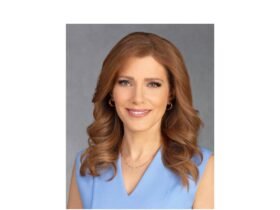

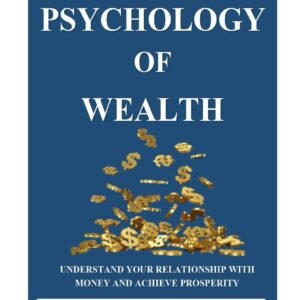
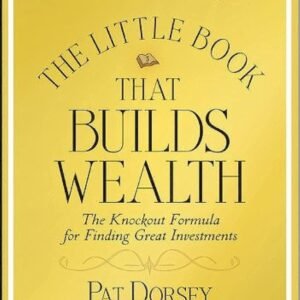
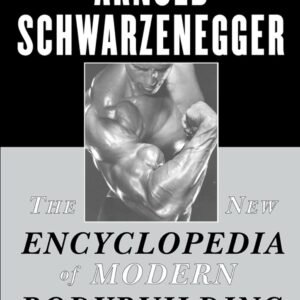
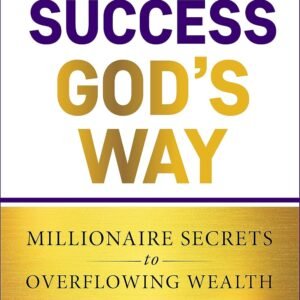








Leave a Reply